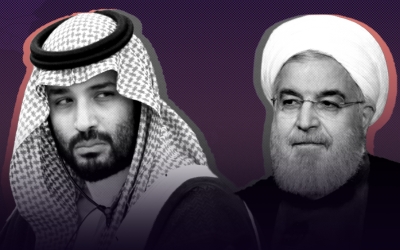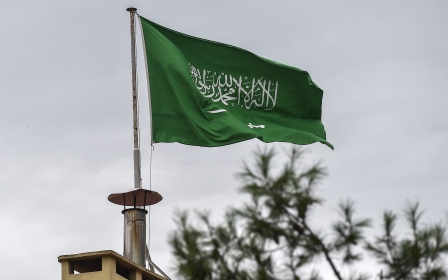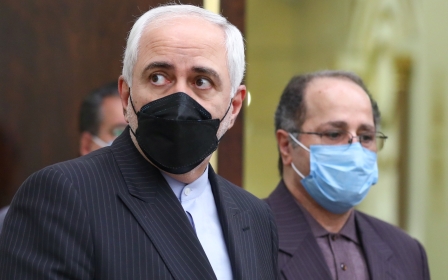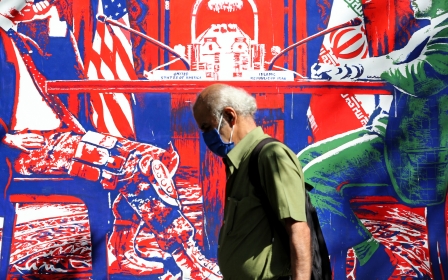EXCLUSIVE: Iran asks Saudi Arabia to help sell its oil in Iraq talks
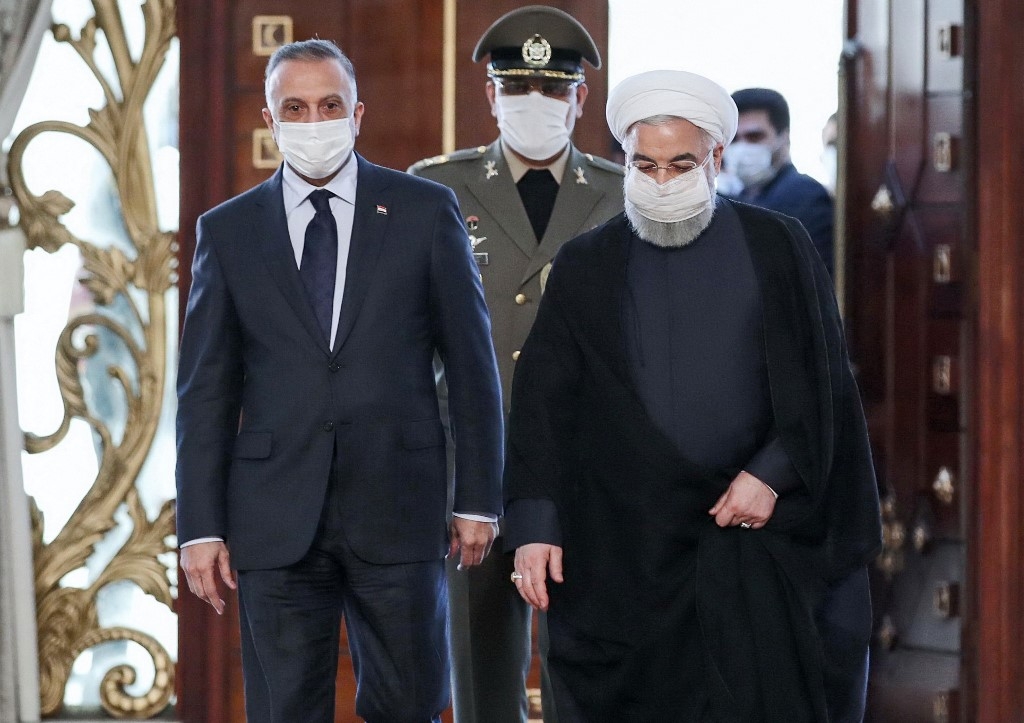
Iran has asked Saudi Arabia to help sell its oil and circumvent US sanctions in exchange for limiting Houthi attacks on the kingdom’s oil facilities, Iraqi officials familiar with negotiations taking place in Baghdad have told Middle East Eye.
After breaking diplomatic ties in 2016, the long-standing regional rivals began a series of direct talks in the Iraqi capital last month.
Their goal, one official told MEE, is “to end the state of conflict and incitement waged by the institutions associated with both countries at all levels".
A new round of secret discussions was held last week in the presence of a limited number of Iraqi officials who participate in the meetings by "contributing to the convergence of views and moistening the atmosphere".
Iraqi sources say the war in Yemen remains the most discussed topic on the table and was the focus of a four-hour conversation during last week’s talks.
During this conversation, the Saudis sought to guarantee the end of attacks, nearly daily in recent months, by Iranian-backed Houthis on its oil and economic institutions.
The Iranians, meanwhile, focused on breaking the economic bottleneck Tehran has suffered since the administration of former US president Donald Trump withdrew from the nuclear agreement in 2018 and reimposed wide-ranging sanctions on the country.
Specifically, the Iranians called on the Saudis to help them sell their oil once again, according to a senior Iraqi official close to Iran and familiar with the progress of the negotiations.
"They offered to sell it to the Saudis at a price lower than international prices on the condition that the Saudis sell it on the world markets in their own way,” the official told MEE.
Iran currently relies mainly on the United Arab Emirates and Oman to sell its oil informally, and needs another regional outlet to bypass the US-imposed blockade. Saudi Arabia appears to be an ideal option for the Iranians now, Iraqi officials said.
Viennese waltz
Talks are currently being held in Vienna between the nuclear agreement’s signatories to bring the US back into the deal, which would herald an end to the crippling sanctions.
But a senior Iraqi official from the office of the national security adviser who follows the progress of the Iranian-Saudi negotiations said he was not surprised that Tehran was pursuing an alternative strategy with Saudi Arabia.
“Opening a new sales outlet for Iranian oil clearly indicates that Iran is seeking to exploit the situation and extend its influence to new areas in the region,” he told MEE.
“Iran is always thinking in a way that allows it to breathe smoothly in all circumstances and provides practical alternatives to enable it to comfortably maneuver in its current negotiations (in Vienna) with the Americans.”
The negotiations in Vienna could extend “for months, maybe years”, he said.
'Finding guaranteed interim alternatives is typical Iranian thinking'
- Senior Iraqi official
“There are no guarantees that things will continue to be this smooth, so finding guaranteed interim alternatives is typical Iranian thinking.”
Neither Saudi Arabia, nor Iranian officials approached for comment responded to MEE by the time of publication.
The Iraqi officials who spoke with MEE said their government had been involved in the direct talks from the very beginning, working to bring the two parties together in Baghdad.
There are two key Iraqi officials who are managing the talks under the authority of Iraqi Prime Minister Mustafa al-Kadhimi. They are Muhammad Abd al-Ridha al-Hashimi - known as Abu Jihad - who is an adviser to al-Kadhimi and the official in charge of the file relating to Iraqi armed factions linked to Iran, and Iraqi National Security Adviser Qasim Al-Araji.
The two men have been travelling frantically, back and forth between Tehran, Riyadh and Baghdad, over the past two months, officials said.
Saudi Arabia's demands
In addition to asking Saudi Arabia to set up an outlet for oil sales, the Iranians also suggested that the Houthis should be “partners in governance” with the Yemeni government in Sanaa.
In return, the Saudis demanded an end to Houthi attacks on their oil and economic institutions, and also an end to the incitement adopted by Iranian institutions and their allies against Saudi Arabia in countries with common influence, especially Iraq, Yemen, Lebanon and Syria.
'The biggest Saudi interest was stopping the Houthi attacks on their institutions'
- Iraqi official
Additionally, according to Iraqi officials, the Saudis demanded greater participation of Sunnis in Iraqi government institutions in a way that better reflects their population in the country, and the end of attacks by Iranian-backed Iraqi factions on Saudi allies and potential investments inside Iraq.
"The biggest Saudi interest was stopping the Houthi attacks on their institutions. The rest was just details,” an Iraqi official close to Iran told MEE.
"The Saudis were insisting on stopping all kinds of incitement against them, including media incitement. During this tour, they did not talk about Lebanon or Iraq in detail.”
On Tuesday, Khalid bin Salman, the Saudi deputy defence minister and head of the Saudi Military Industries Authority, arrived in Baghdad and, in addition to al-Kadhimi, met with Iraqi President Barham Salih.
It was not clear whether Khalid bin Salman's visit had anything to do with the Iranian-Saudi talks or if he was carrying a message in response to Iran’s request.
However, Iraqi officials said that a new round of talks will take place in Baghdad within the next few days and that Iran’s negotiating delegation - which includes members of the Iranian intelligence service, the Iranian Revolutionary Guard and specialists from other security institutions who have not previously worked in Iraq - arrived in Baghdad several days ago.
"It is clear that there is a real desire on the two sides (the Iranians and the Saudis) to reach an agreement. There are no results reached so far, but the atmosphere is positive and promising,” the national security adviser official said.
"We want them to reach an agreement to stop using Iraq as an arena for conflict between them, and then they will work to stabilise it,” he added. “A stable and secure Iraq will serve them on all levels much more than a troubled and torn Iraq."
Middle East Eye delivers independent and unrivalled coverage and analysis of the Middle East, North Africa and beyond. To learn more about republishing this content and the associated fees, please fill out this form. More about MEE can be found here.


